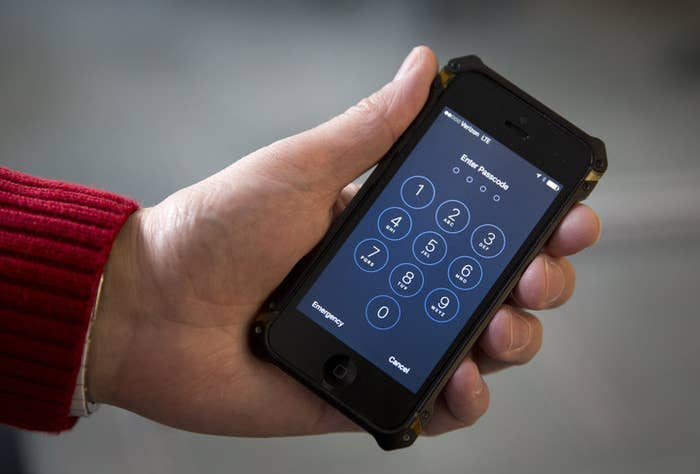
SAN FRANCISCO — The Justice Department (DOJ) announced Monday that it had successfully accessed data on the iPhone used by one of the San Bernardino shooters and that it was dropping its case against Apple to help unlock the phone.
Investigators are no longer seeking Apple's help to penetrate the device, according to a court filing by the DOJ Monday.
In a call with reporters Monday evening, a law enforcement official said the FBI is currently reviewing the iPhone's data, which it obtained through the assistance of an outside party. The method they used, he said, worked on an iPhone 5c running iOS 9, but added that it was "premature to say anything about our abilities to access other phones."
How the exploit might be used on other devices highlights a central disagreement between the Justice Department and Apple. They've clashed over the issue of precedent: Apple believes the consequences of the case extend far beyond one iPhone. But the government has taken a more narrow view, that the investigation has always been about a single device, and nothing more.
The official declined to reveal the name of the outside party who demonstrated the exploit to the FBI, despite widespread speculation over who was involved and what methods they used. The official also declined to say whether the method they used would be subject to a government review process, which might force law enforcement to disclose cyber vulnerabilities in the public interest.
The exploit proved successful this weekend, the official said, one week after the outside party showed the FBI how to gain access to the device. The government has declined to identify the outside party, or to say whether it is foreign or domestic, though the official confirmed that the third party is not from a U.S. government agency.
When asked whether the FBI would share the iPhone exploit with local police departments, the official declined to answer. Though, in general, he said the Justice Department and the FBI "are committed to helping our state and local partners gain lawful access to evidence on mobile devices, and we intend to continue assisting them in appropriate cases."
Following the government's announcement, Apple said the company remains committed to improving the security of its products, and to helping law enforcement. But the iPhone maker also challenged the Justice Department for pulling it into a legal battle in the first place.
"From the beginning, we objected to the FBI's demand that Apple build a backdoor into the iPhone because we believed it was wrong and would set a dangerous precedent," Apple said in a statement to BuzzFeed News. "As a result of the government’s dismissal, neither of these occurred. This case should never have been brought."
The government's move appeared to end a monthlong standoff between the DOJ and one of the world's most powerful technology companies — though the larger debate over law enforcement and government access to encrypted devices is far from settled.
Several cases are currently winding their way through the courts, with law enforcement seeking Apple's help to pull data from 12 encrypted devices. And Apple is promising to double down on efforts to make its phones nearly impossible to breach. In Congress and in the White House, the issue of consumer encryption continues to pose a challenge to policymakers.
Law enforcement officials insist that robust encryption interferes with their ability to prevent and prosecute crime. But the tech industry, privacy-minded lawmakers, and civil liberties groups maintain that encryption plays a vital role in protecting the public against hackers, identify thieves, and sophisticated cyberattacks.
In a statement, Melanie Newman, DOJ spokesperson, said:
As the government noted in its filing today, the FBI has now successfully retrieved the data stored on the San Bernardino terrorist’s iPhone and therefore no longer requires the assistance from Apple required by this Court Order. The FBI is currently reviewing the information on the phone, consistent with standard investigatory procedures.
It remains a priority for the government to ensure that law enforcement can obtain crucial digital information to protect national security and public safety, either with cooperation from relevant parties, or through the court system when cooperation fails. We will continue to pursue all available options for this mission, including seeking the cooperation of manufacturers and relying upon the creativity of both the public and private sectors.
In a statement, Apple said:
From the beginning, we objected to the FBI's demand that Apple build a backdoor into the iPhone because we believed it was wrong and would set a dangerous precedent. As a result of the government’s dismissal, neither of these occurred. This case should never have been brought.
We will continue to help law enforcement with their investigations, as we have done all along, and we will continue to increase the security of our products as the threats and attacks on our data become more frequent and more sophisticated.
Apple believes deeply that people in the United States and around the world deserve data protection, security and privacy. Sacrificing one for the other only puts people and countries at greater risk.
This case raised issues which deserve a national conversation about our civil liberties, and our collective security and privacy. Apple remains committed to participating in that discussion.
The full court filing is below.


